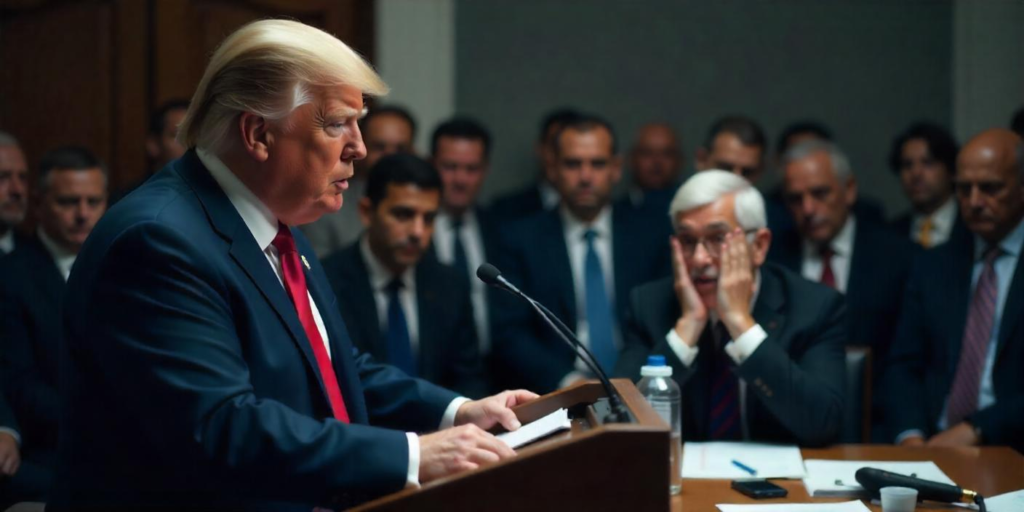
As of January 2025, the United States, led by President Donald Trump, has once again decided to halt its aid to Bangladesh, a move that has sparked both domestic and international concerns. The decision comes at a time when Bangladesh is facing a number of challenges including climate change, poverty, economic instability and a coup, making the suspension of aid particularly controversial.
Background: U.S. Aid to Bangladesh:
The United States has been a significant donor to Bangladesh for decades, providing financial assistance in various forms. This assistance has helped solve a number of issues, from healthcare and education to infrastructure and disaster relief. As of 2023, the United States provided nearly $200 million in assistance annually to Bangladesh through both bilateral aid and multilateral programs.
Assistance has also been critical in supporting Bangladesh’s democratic institutions, poverty reduction efforts, and responding to natural disasters such as floods and cyclones. In addition, the U.S. has been involved in programs aimed at promoting human rights and combating corruption in Bangladesh.
Trump’s Policy Shift: A Suspension of Aid:
In January 2025, Donald Trump, who had returned to the presidency after winning the 2024 election, announced that the US would once again suspend all foreign aid to Bangladesh. The move has been met with strong reactions from Bangladesh and around the world.
Reasons for the Suspension:
While the specific details behind the decision are still emerging, several key factors influence the decision:
1.
Human Rights Concerns: One of the most commonly cited reasons for the reduction in aid is ongoing concerns about human rights abuses in Bangladesh. The U.S. government has expressed growing frustration with the Bangladeshi government’s record on freedom of expression, political repression, and treatment of ethnic minorities, particularly Rohingya refugees, who have fled violence in Myanmar and sought asylum in Bangladesh.
In recent years, Bangladesh has faced increasing international scrutiny over its handling of political protests, which have led to several high-profile arrests of political leaders and human rights activists. The US has been critical of the Bangladeshi government’s crackdown on dissent, including restrictions on press freedom and harassment of journalists.
2.
Corruption and Governance Issues: Another major concern is persistent corruption within Bangladesh’s political system. The US has long been vocal about Bangladesh’s need to improve transparency and strengthen its institutions. Despite the Bangladeshi government’s efforts to combat corruption, the U.S. has cited insufficient progress in curbing corruption and ensuring better governance, which has undermined the effectiveness of development programs funded by U.S. assistance.
3.
Geopolitical Considerations: In the broader geopolitical context, the US is increasingly focused on containing China’s influence in South Asia. Bangladesh, which shares borders with India and Myanmar, plays a crucial role in this geopolitical landscape. The Trump administration’s decision to cut aid to Bangladesh can be interpreted as a response to Bangladesh’s growing economic and political engagement with China, especially with regard to the Belt and Road Initiative (BRI). The U.S. has been wary of Chinese influence in the region, and some analysts suggest that the aid cuts could be an attempt to renegotiate Bangladesh’s strategic alignment.
4.
Security and Counter-Terrorism Concerns: Another factor could be security concerns in Bangladesh. While the country has made significant progress in combating extremism, there have been instances of terrorist attacks involving radical groups in the region. The U.S. has long provided assistance to Bangladesh for counterterrorism efforts, but tensions have emerged over the effectiveness of these programs and the government’s willingness to engage in broader security improvements.
Impact on Bangladesh:
The suspension of US aid is likely to have significant repercussions for Bangladesh. The country relies heavily on foreign aid to support various sectors, especially areas focused on poverty alleviation, education, and healthcare. With a large part of Bangladesh’s population living below the poverty line, the absence of US aid could exacerbate existing challenges.
In addition, the suspension could damage relations between Bangladesh and the US, potentially leading to diplomatic tensions. Bangladesh can try to strengthen relations with other international partners, including China, and regional powers such as India, to fill the gap left by the cessation of US aid.
Bangladesh’s Response:
In response to the suspension of aid, the Bangladesh government has strongly criticized the move. Officials argue that the decision is politically motivated and ignores the progress made by the country in many areas, including economic growth, poverty reduction, and disaster management. They also emphasize that the Bangladeshi government has made significant progress in addressing human rights concerns, even if progress has been slower than expected.
Some experts believe that Bangladesh will back down against the suspension by taking advantage of its strategic position in the region and its growing ties with China, which could provide alternative sources of financial support.